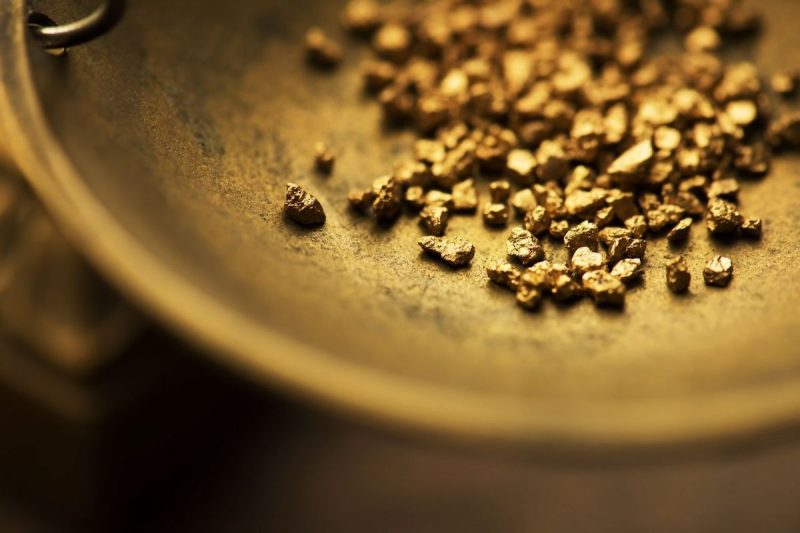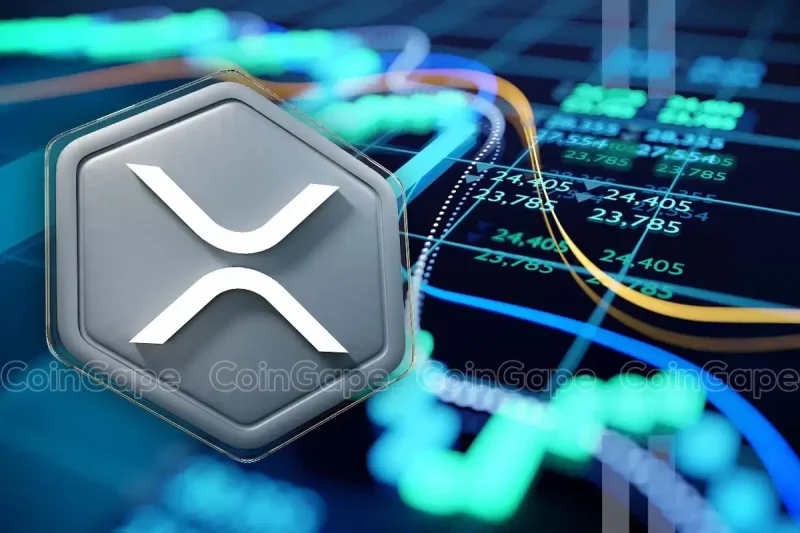5 Best-performing Canadian Nickel Stocks of 2024


After trending down in 2023, nickel prices climbed to a 10 month high in late May of this year. However, they’ve since pulled back to four-year lows. While this environment has been tough for nickel companies, some stocks are still thriving.
Supply is expected to outflank demand over the short term, but the longer-term outlook for the metal is strong. Demand from the electric vehicle (EV) industry is one reason nickel’s outlook looks bright further into the future.
Battery nickel demand is poised to triple by 2030, according to Benchmark. “Mid and high level performance EVs will be the primary driver of battery nickel demand growth in the coming years, particularly in Western markets,” said Jorge Uzcategui, senior nickel analyst at Benchmark. “There will be growth in China, but it won’t be as pronounced as in ex-China markets.”
As for Canada, nickel is listed as a top priority in the government’s Critical Minerals Strategy. The country is the world’s fifth largest producer of nickel, with much of its production coming from mines in Ontario’s Sudbury Basin, including Vale’s (NYSE:VALE) Sudbury operation and Glencore’s (LSE:GLEN,OTC Pink:GLCNF) Sudbury Integrated Nickel Operations.
In February, Canada Nickel Company (TSXV:CNC,OTCQX:CNIKF) announced its subsidiary NetZero Metals is planning to develop a US$1 billion nickel-processing plant in Ontario that will become North America’s largest once complete.
How have Canadian nickel stocks performed in 2024? Below are the top nickel stocks in Canada on the TSXV and CSE by share price performance so far this year. TSX stocks were considered, but didn’t make the cut.
All year-to-date and share price data was obtained on December 13, 2024, using TradingView’s stock screener. The top nickel stocks in Canada listed had market caps above C$10 million at that time.
1. Class 1 Nickel and Technologies (CSE:NICO)
Year-to-date gain: 533.33 percent
Market cap: C$35.9 million
Share price: C$0.19
Class 1 Nickel and Technologies’ flagship property is its Alexo-Dundonald nickel project near Timmins, Ontario. The past-producing asset hosts four nickel sulfide deposits. The company’s pipeline also includes the past-producing Somanike nickel-copper project near Val-d’Or, Québec, and the River Valley platinum group metals (PGMs) project near Sudbury, Ontario.
Class 1 Nickel released resource estimate updates for the Alexo South and Alexo North deposits in April and May of this year, respectively. The company said it expects to start work on a preliminary economic assessment for Alexo-Dundonald in the near term as part of its plan to bring the asset back into production.
On October 3, Class 1 Nickel put out an updated resource estimate for the Dundonald South nickel deposit. In the indicated category, the company reported a 781 percent increase in metric tons of ore and a 474 percent increase in pounds of nickel.
The Canadian nickel exploration company’s share price started off the year at C$0.06, and began climbing in April to reach a year-to-date high of C$0.40 on November 18.
2. Power Nickel (TSXV:PNPN)
Year-to-date gain: 318.18 percent
Market cap: C$187.23 million
Share price: C$0.92
Power Nickel is developing its 80 percent owned Nisk polymetallic property in Québec, which hosts nickel, copper, platinum and palladium mineralization. According to the company, it plans to create Canada’s first carbon-neutral nickel mine. The polymetallic nature of the project is a plus for the economic case for future nickel production in a low price environment.
This ongoing work has generated positive news flow for the company in 2024. After starting the year at C$0.24, Power Nickel began gaining in mid-April following two key announcements. First, the company released drill results from the newly discovered Lion zone 5 kilometers northeast of the main Nisk deposit. Shortly after, it announced the completion of its option to earn an 80 percent stake in Nisk from Critical Elements Lithium (TSXV:CRE,OTCQX:CRECF).
Power Nickel’s share price jumped more than 15 percent on May 10 to reach C$0.64 following news that drilling continued to expand the high-grade, near-surface Lion discovery, with notable assays including 14.42 meters at 0.59 grams per metric ton (g/t) gold, 69.14 g/t silver, 8.17 percent copper, 6.25 g/t palladium, 8.44 g/t platinum and 0.58 percent nickel.
In June, Power Nickel commenced an 8,000 meter summer drill program at Nisk, and closed a flow-through offering for gross proceeds of over C$20 million. Some of the biggest names in mining — Robert Friedland and Rob McEwen — participated.
The company’s excellent news flow continued into the fourth quarter with a series of stellar drill results from its Nisk winter drill program, including significant intersections as shared in its October 3, October 28 and November 11 news releases. Additionally, on December 5, Power Nickel announced it was executing a spinout of its interest in the Golden Ivan property in Chile into a wholly owned subsidiary Chilean Metals.
Power Nickel continued to climb before peaking at a year-to-date high of C$0.96 on December 12. On that same day, the company released another set of positive assay results from its work at Nisk.
3. Magna Mining (TSXV:NICU)
Year-to-date gain: 234.15 percent
Market cap: C$214.48 million
Share price: C$1.37
Magna Mining is a base metal exploration and development company based in Sudbury, Ontario. The company’s flagship assets are the Shakespeare Mine and the Crean Hill project. Shakespeare is a past-producing, nickel-copper-platinum group mine with major permits in place. The current deposit at Shakespeare hosts an NI 43-101 indicated open pit resource of 14.4 million MT. Crean Hill is a past producing nickel, copper and PGM mine.
In March, Magna announced the signing of a definitive off-take agreement with Vale Base Metals wholly-owned subsidiary Vale Canada for the advanced exploration portion of the Crean Hill project. A few months later, in June, it inked a toll milling agreement with Glencore Canada for the surface bulk sample of the 109 Footwall Zone at Crean Hill.
The company entered into a definitive share purchase agreement with a subsidiary of KGHM Polska Miedz (FWB:KGHA) to acquire a portfolio of base metals assets located in the Sudbury Basin, including the producing McCreedy West copper-nickel mine. In November, Magna completed an updated preliminary economic assessment at Crean Hill.
Magna Mining’s share price started off the year at C$0.57, and gradually climbing to double its value by September 13. It reached a year-to-date high of C$1.67 on December 4.
4. Tartisan Nickel (CSE:TN)
Year-to-date gain: 108.7 percent
Market cap: C$27.19 million
Share price: C$0.24
Tartisan Nickel s a Canadian battery metals exploration and development company focuses on developing the Kenbridge nickel-copper-cobalt project located in Northwestern Ontario, Canada.
Tartisan acquired additional exploration claims for the Kenbridge project in mid-May. In November, the company closed C$1.5 million in flow-through financing with proceeds primarily going to fund the exploration and development of the project.
Shares in Tartisan Nickel fluctuated significantly in 2024. The company kicked off the year at C$0.19 before falling to a low of C$0.10 on March 12. However, its share price climbed rapidly in May to reach a year-to-date high of C$0.26 on May 16. Although shares fell as low as C$0.12 in late June, its value had doubled back up to C$0.24 on December 13.
5. EV Nickel (TSXV:EVNI)
Year-to-date gain: 70.83 percent
Market cap: C$38.41 million
Share price: C$0.41
EV Nickel’s primary project is the 30,000 hectare Shaw Dome asset, which is situated near Timmins, Ontario. The property includes the high-grade W4 deposit, which has a resource of 2 million metric tons at 0.98 percent nickel for 43.3 million pounds of Class 1 nickel across the measured, indicated and inferred categories.
Shaw Dome also holds the large-scale CarLang A zone, which has a resource of 1 billion metric tons at 0.24 percent nickel for 5.3 billion pounds of Class 1 nickel across the indicated and inferred categories.
EV Nickel is working on integrating carbon capture and storage technology for large-scale clean nickel production, and has procured funding from the Canadian government and Ontario’s provincial government. In late 2023, the company announced it was moving its carbon capture research and development to the pilot plant stage.
The company’s news so far in 2024 includes the closure of a flow-through financing in March that ultimately saw EV Nickel raise C$5.12 million to fund the development of its high-grade, large-scale nickel resources.
In April, EV Nickel launched a 2024 exploration program that is aimed at advancing the CarLang trend and exploring other nickel targets. The most recent news out of the program came in early September with the announcement that diamond drilling at the Langmuir #2 high-priority nickel target had confirmed high-grade nickel, with intercepts such as 18.5 meters grading 1.07 percent nickel, 7.5 meters grading 1.67 percent nickel, 2 meters grading 3.27 percent nickel and 1 meter grading 5.11 percent nickel. EV Nickel described the results as ‘very encouraging.’
The Canadian nickel exploration company’s share price started off the year at C$0.30 before steadily climbing to reach a year-to-date high of C$0.79 on May 17.
FAQs for nickel investing
How to invest in nickel?
There are a variety of ways to invest in nickel, but stocks and exchange-traded products are the most common. Nickel-focused companies can be found globally on various exchanges, and through the use of a broker or a service such as an app, investors can purchase companies and products that match their investing outlook.
Before buying a nickel stock, potential investors should take time to research the companies they’re considering; they should also decide how many shares will be purchased, and what price they are willing to pay. With many options on the market, it’s critical to complete due diligence before making any investment decisions.
Nickel stocks like those mentioned above could be a good option for investors interested in the space. Experienced investors can also look at nickel futures.
What is nickel used for?
Nickel has a variety of applications. Its main use is an alloy material for products such as stainless steel, and it is also used for plating metals to reduce corrosion. It is used in coins as well, such as the 5 cent nickel in the US and Canada; the US nickel is made up of 25 percent nickel and 75 percent copper, while Canada’s nickel has nickel plating that makes up 2 percent of its composition.
Nickel’s up-and-coming use is in electric vehicles as a component of certain lithium-ion battery compositions, and it has gotten extra attention because of that purpose.
Where is nickel mined?
The world’s top nickel-producing countries are primarily in Asia: Indonesia, the Philippines and New Caledonia make up the top three. Rounding out the top five are Russia and Canada. Indonesia’s production stands far ahead of the rest of the pack, with 2023 output of 1.8 million metric tons compared to the Philippines’ 400,000 metric tons and New Caledonia’s 230,000 metric tons.
Significant nickel miners include Norilsk Nickel (OTC Pink:NILSY,MCX:GMKN), Nickel Asia, BHP Group (NYSE:BHP,ASX:BHP,LSE:BHP) and Glencore (LSE:GLEN,OTC Pink:GLCNF).
Securities Disclosure: I, Melissa Pistilli, hold no direct investment interest in any company mentioned in this article.






